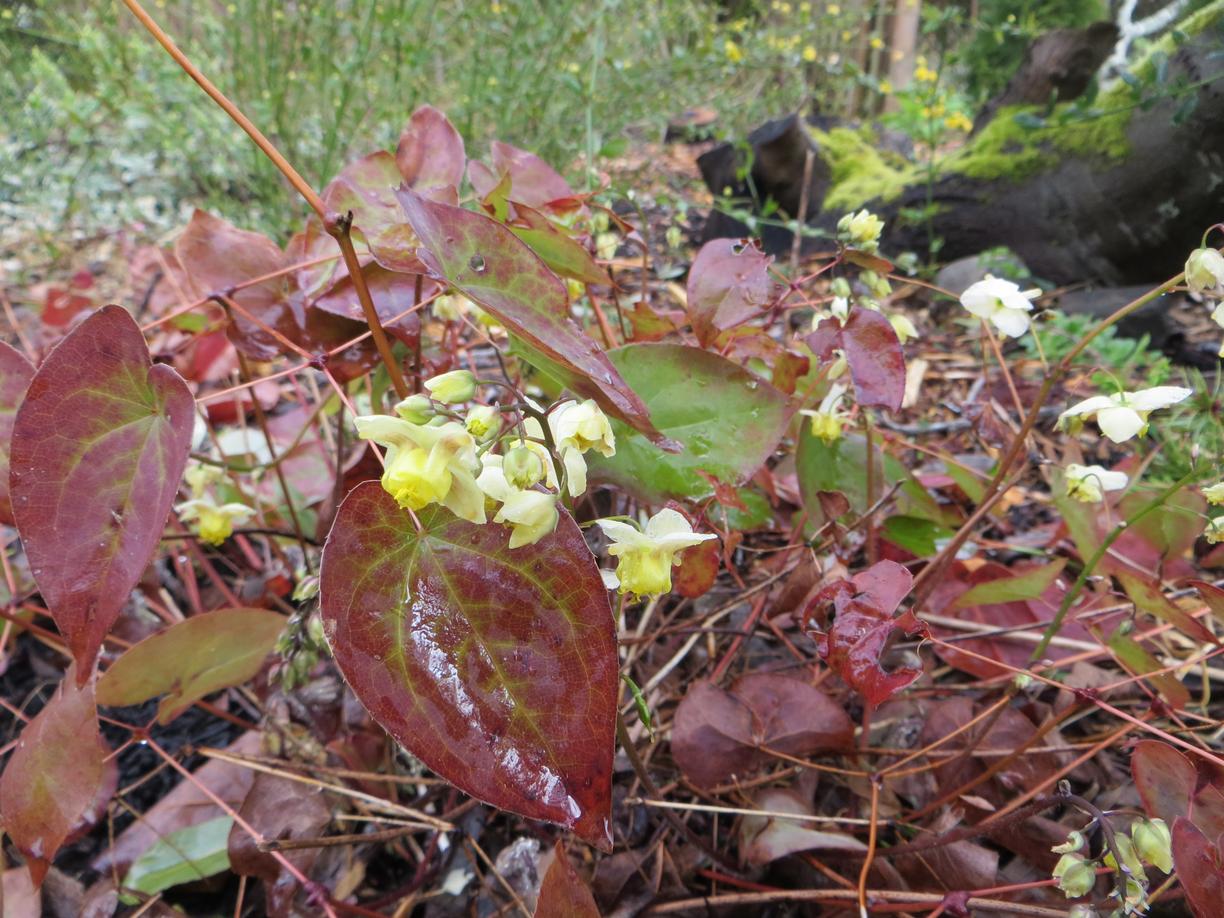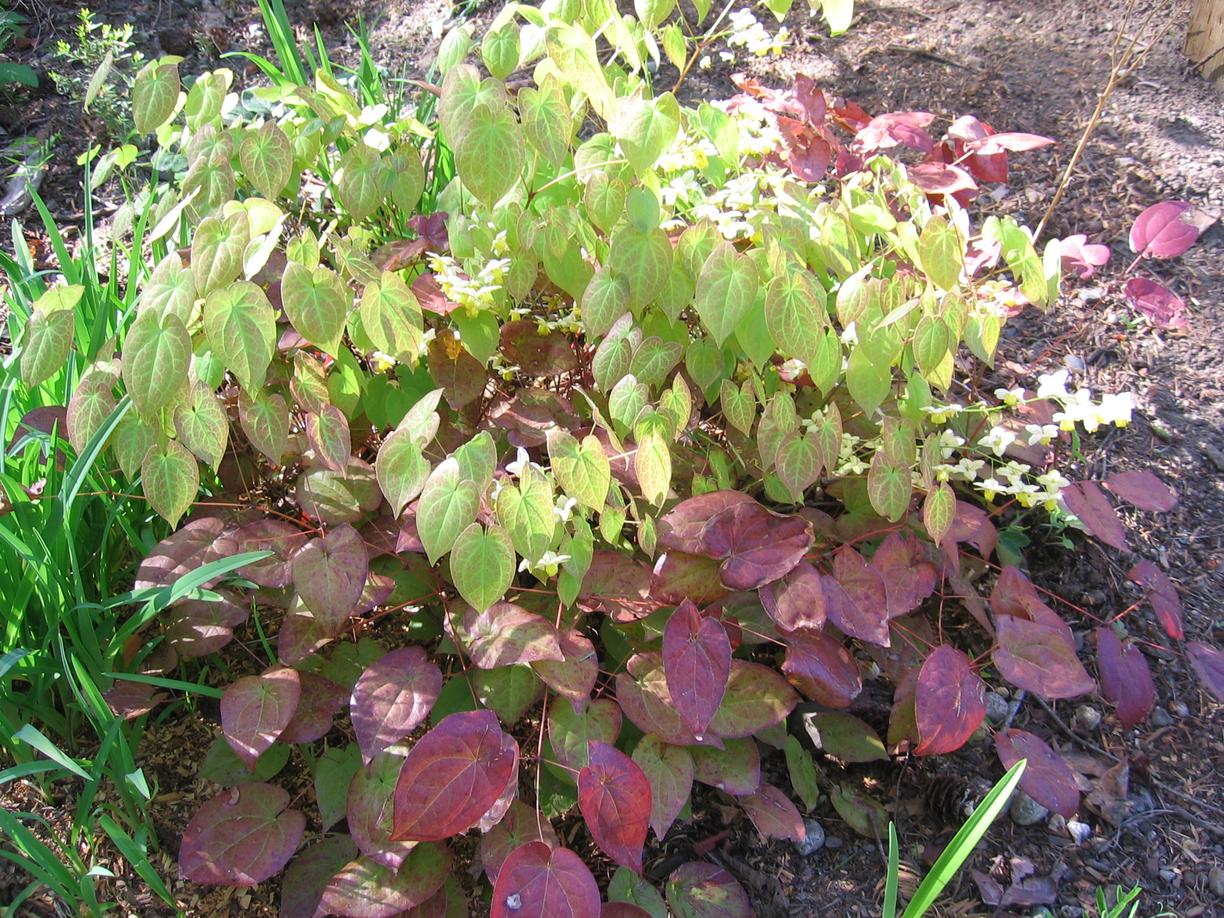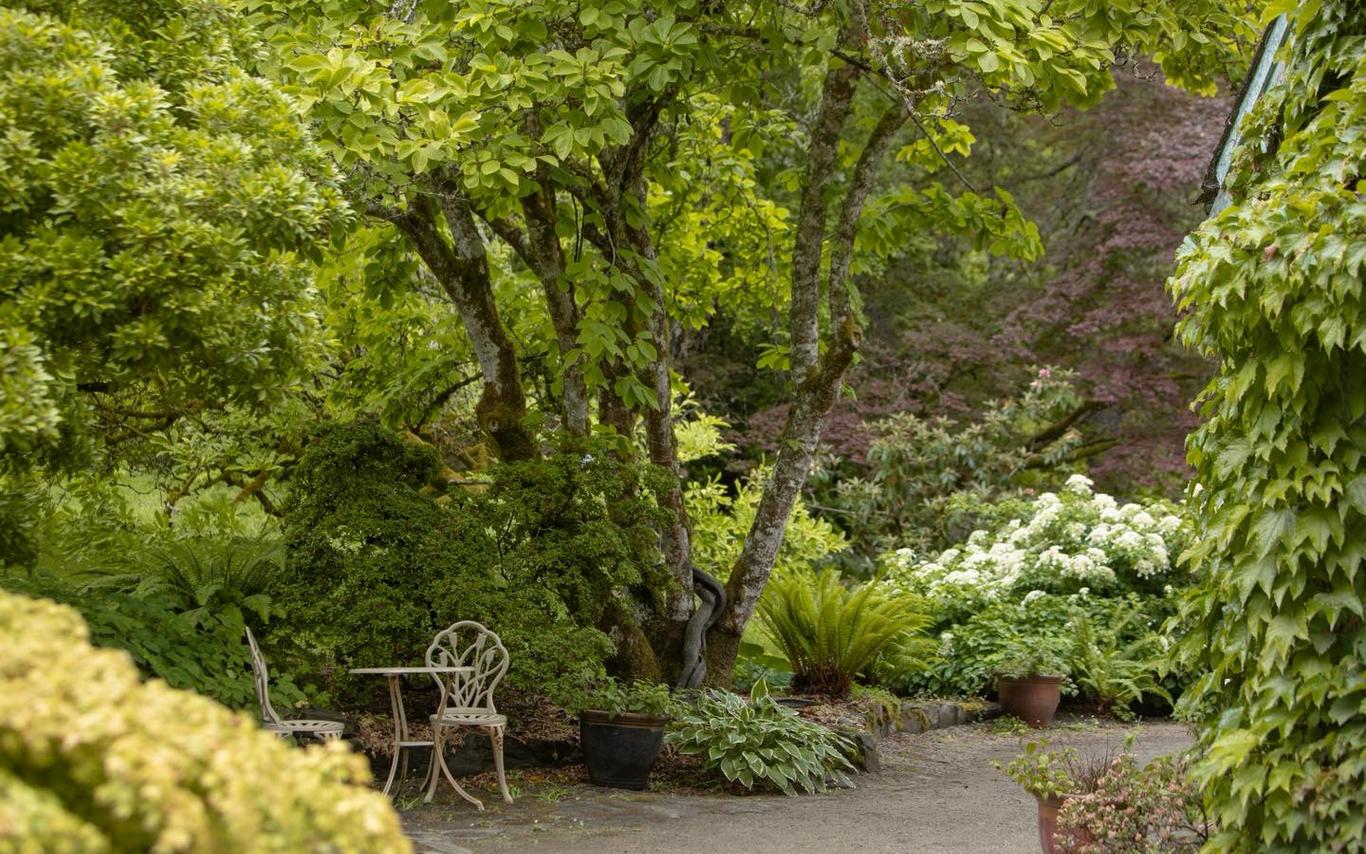Latin name: Epimedium versicolor
by Vancouver Island Master Gardeners Association
Epimediums are a gift from Asia to Pacific NW gardeners. This underused plant is easy to grow and has visual interest year around. The attractive evergreen foliage is highly coloured and if trimmed to the ground in late winter reveals a show of spring flowers in a variety of yellows, golds and pinks.
The Barberry Family includes two native favorites including Oregon grape and vanilla leaf so it is not surprising that another genus in this family is well adapted to our climate. Epimedium versicolor is a hybrid between E. grandiflorum and E. pinnatum and has given rise to a variety of mostly sterile clones propagated by rhizomes. This perennial with colourful semi-evergreen foliage is a wonderful ground cover in semi-shaded areas under trees. Splendid in massed plantings it holds its own against weeds and pests and drought. E. x versicolor ‘Sulphureum’ is one of the best cultivars and its two-tone butter yellow flowers are carried in delicate sprays on wiry stems in early spring.


Photo Credit: Phyllis Fafard
Attribute | Description |
|---|---|
Form: | low growing perennial |
Foliage type: | semi-evergreen heart-shaped leaves |
Height/Width: | 30 cm – spreads 2+ m |
Hardiness Zone: | USDA 5 - 9 |
Exposure: | part shade to full shade (flowers best in light shade) |
Flower colour: | varies from yellows to pinks and reds – some bi-coloured |
Leaf colour: | emerges in reddish tones matures to greens and turns red again in fall |
Flower time: | early spring – delicate flowers in parts of four – outer sepals, inner sepals and true petals which often have a nectar-producing spur. |
Preferred soil and Watering: | Watering; tolerant of soil types but does best in humus rich well drained soil. Average watering but drought tolerant when established |
Other: | Mostly pest free (including deer and rabbits),but sometimes can be bothered by vine weevils. Easy to grow and can be propagated by division in spring or fall. Long lived. |

